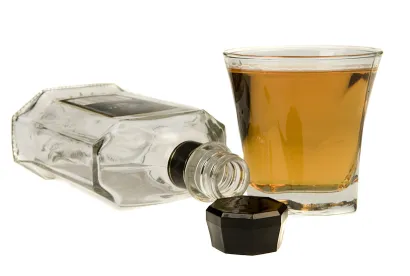In a decision that will interest distillers and hipster connoisseurs of artisanal beverages alike, a district court in the Northern District of Florida has decided that Maker’s Mark can describe its whiskey as “handmade” despite the fact that it is produced in industrial quantities to serve the national market. Accordingly, the court refused to allow prohibition of Maker’s Mark advertising and dismissed the putative class action.
The class plaintiffs alleged that the “handmade” claim duped them into buying factory whiskey, heartlessly distilled through a highly-mechanized process, rather than the bespoke craft whiskey they thought they were buying. Presumably they expected their whiskey to be made in vintage claw-foot bathtubs by mustachioed men wearing suspenders, or under similarly ironic conditions.
The judge showed this argument as much sympathy as Eliot Ness would show a barrel of bootleg hooch. His opinion – which is interesting because it analyzes what the term “handmade” means to a consumer in the context of a nationally marketed product – dismissed the claims brought under the Florida Deceptive and Unfair Practices Act and state false advertising statute as facially implausible.
The court explored a number of definitions of “handmade” and found that reasonable consumers could not be misled under any of them. Starting with the original definition of “handmade” as “distinguished from the works of nature,” the court found that “bourbon, unlike coffee or orange juice, cannot be grown in the wild.” The court did not mention the legendary “Whiskey River” Willie Nelson sang about but, as of press time, explorers have not yet confirmed its existence.
Second, the court noted the modern definition of “handmade” as “made by hand,” but concluded that no reasonable consumer could believe that nationally marketed bourbon, like Maker’s Mark, could be “made by hand,” like sweaters knitted by so many doting grandmothers.
The court then addressed the alternative definitions proposed by the class plaintiffs, rejecting each in turn. First, the plaintiffs argued that “handmade” implies that the bourbon was made from scratch and in small units. However, the court found that Maker’s Mark do in fact make their bourbon from scratch and in small batches (no more than 19 barrels, in case you are interested), so there was no false representation. Similarly, the court also rejected plaintiffs’ argument that “handmade” implies close attention by a human being – not a high-volume, untended process – because Maker’s Mark produced its bourbon at scale, with keen human oversight, in “small, carefully tended batches.”
In their most creative argument, the plaintiffs also alleged that “handmade” means “made with only some kind of machines, not others,” so that Maker’s use of machines that were too big or modern would deceive consumers. While the thought of national distillers using pre-civil war or steam powered equipment to score cachet is intriguing (somebody is almost certainly trying this in Brooklyn or Detroit right now), the court determined that “handmade” carried no implications about the age or size of equipment used in the distillation process.
Finally, the plaintiffs argued that “handmade” bourbon – like “craft beer” – trades on the current trend for authenticity and artisanal products. Notwithstanding the fact that Maker’s Mark had been using this term for decades before the current 19th century retro-vogue began, the court found that “handmade” was non-actionable puffery, just as if the label described the bourbon as “smooth” or made with the same skill and care for decades. This finding in particular could embolden other national producers who want to cash in on the “craft” trend.
In an age where a significant portion of the population – including these class plaintiffs, apparently – gravitate towards and demand “authenticity” in their consumer experience, this decision reconciles commercial realities with hipster expectations. We expect more decisions in this vein and will, of course, keep you posted.




 />i
/>i

